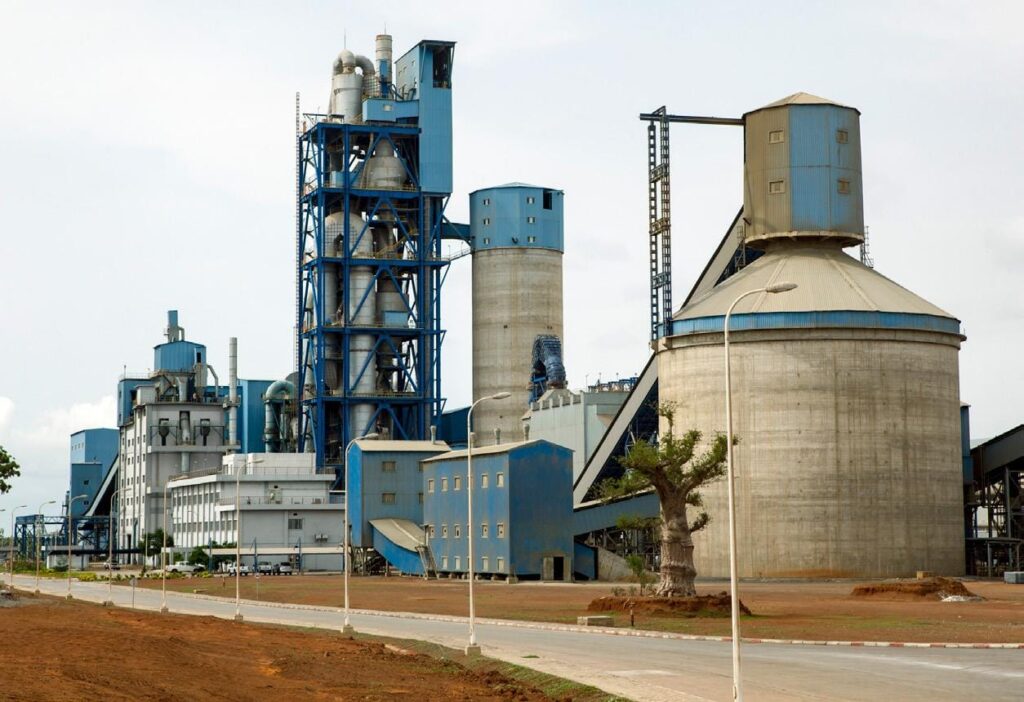In Summary
- The manufacturing sector in Africa is projected to have a value-added output of $77.66 billion and a total output of $284.70 billion by the end of 2025.
- With projected Foreign Direct Investment (FDI) inflows in 2025 pegged at 4%, and CAGR (2025-2029) at -2.27% for value-added, and -2.84% for output, the manufacturing sector is poised to become a major attraction point for foreign investors.
- Value-Added Per Capita sits at $98.25, Value-Added Margin: 27%, Output Per Enterprise: US$1.21 million and Manufacturing Intensity: 14.32% over 235,000 Number of Enterprises highlights Africa’s manufacturing sector.
Deep Dive!!
Africa’s manufacturing sector is expanding and remains a cornerstone for sustainable economic growth and industrial transformation across the continent. As the continent accelerates efforts to diversify the economies of individual nations beyond raw material exports, several countries have emerged as key players in industrial production as a panacea for economic development.
According to experts, the industrial revolution is often driven by strategic investments, favorable government policies, and a rising demand for locally produced goods. Manufacturing shapes a country’s international competitiveness and promotes industrialization, job creation, and sustainable economic development through food processing, production of goods, pharmaceuticals, and heavy machinery.
Within the last decade, a few countries have stood out for hosting the largest manufacturing companies in Africa, both in scale and influence. Here are the top 10 African countries hosting the largest and most influential manufacturing companies, setting new benchmarks for industrial excellence on the continent.
10. Zambia
Zambia’s manufacturing sector is steadily rising and is powered by agriculture, construction, and consumer goods. Zambeef Products leads in agri-processing, while Trade Kings has become a regional FMCG powerhouse. Government support for local production and industrialization has accelerated this growth trajectory. The leading sectors are Cement, Agro-processing, Steel, Food, and Beverages handled by major players such as Zambeef, Lafarge Zambia, Trade Kings, and Dangote Zambia.
9. Tunisia
Tunisia is a key supplier of electronics and auto components to European markets. Its robust textile industry is evolving through modernization and international collaboration, positioning Tunisia as a niche player in light manufacturing. The leading sectors are Electronics, Automotive Components, Textiles, and Pharmaceuticals, with companies such as STIP, Coficab, Poulina Group, and Socotal leading the charge.
8. Ghana
Ghana’s independence-long focus on value-added manufacturing in agriculture and cocoa has transformed its industrial landscape. The “One District One Factory” initiative has fostered SME growth, while established firms like Kasapreko and Fan Milk extend Ghana’s manufacturing reach internationally. The country houses major manufacturing plants for Cocoa Processing, Agro-processing, Cement, and Pharmaceuticals owned by top companies such as Nestlé Ghana, Fan Milk, Kasapreko, and WAPCo Ghana.
7. Ethiopia
Ethiopia’s industrial parks and low-cost labor have attracted global firms, especially in garments and textiles. Despite challenges, Ethiopia continues to push for export-led manufacturing growth, with strong government backing for industrialization. The country is known for Textiles, Leather, Cement, and Food Processing, by top companies such as East Africa Bottling (Coca-Cola), Ayka Addis, and Derba Cement.
6. Algeria
Known majorly for Cement, Automotives, Steel, and Electronics manufacturing, Algeria combines public and private manufacturing leadership, led by conglomerates like Groupe Cevital. The country’s automotive assembly industry and strong infrastructure base are helping it scale in regional manufacturing. Top manufacturing companies in the country include Groupe Cevital, Lafarge Algeria, Hyundai Algeria, and SNVI.
5. Kenya
Kenya’s manufacturing strength lies in consumer goods and agro-processing. Nairobi is emerging as an innovation hub for pharmaceuticals and plastics, with major companies expanding operations across East and Central Africa. The country is known for Agro-processing, Building Materials, Pharmaceuticals, and Plastics manufacturing, by Bidco Africa, Brookside Dairy, Devki Group, Kenafric Industries, and other top manufacturing companies.
4. Morocco
Morocco is a leading industrial hub in North Africa, attracting foreign direct investment in high-tech industries like aerospace and auto manufacturing. Government incentives and trade ties with the EU make it a strategic export base. The leading sectors in the country are Automotive, Aerospace, Textiles, and Electronics, managed by Renault Morocco, PSA Group, Bombardier Morocco, Managem Group, and other top companies.
3. Nigeria
Nigeria is home to some of Africa’s largest industrial conglomerates. The Dangote Refinery project and BUA Group’s rapid expansion illustrate Nigeria’s manufacturing ambitions, buoyed by a large domestic market and policy reforms. The top manufacturing sectors in the country include Cement, Consumer Goods, Food and Beverages, and Oil Refining, handled by leading manufacturers like Dangote Group, BUA Group, Nestlé Nigeria, and Unilever Nigeria.
2. Egypt
Egypt’s manufacturing ecosystem thrives on exports to Europe and the Middle East. With a strong presence in chemicals, cement, and pharma, Egypt has positioned itself as a continental manufacturing leader supported by industrial reforms. The country is known for the production of Cement, Textiles, Pharmaceuticals, and Petrochemicals, handled by top companies such as Elsewedy Electric, Arabian Cement Company, Cleopatra Group, EIPICO, and a host of others.
1. South Africa
South Africa tops the list as Africa’s most industrialized nation. Its advanced infrastructure, diversified industrial base, and global partnerships, especially in the automotive and chemical sectors make it the continent’s undisputed manufacturing giant in 2025. The leading sectors are Automotive, Steel, Chemicals, and Food Processing, managed by top companies like Sasol, ArcelorMittal South Africa, Sappi, Tiger Brands, and Volkswagen SA.

